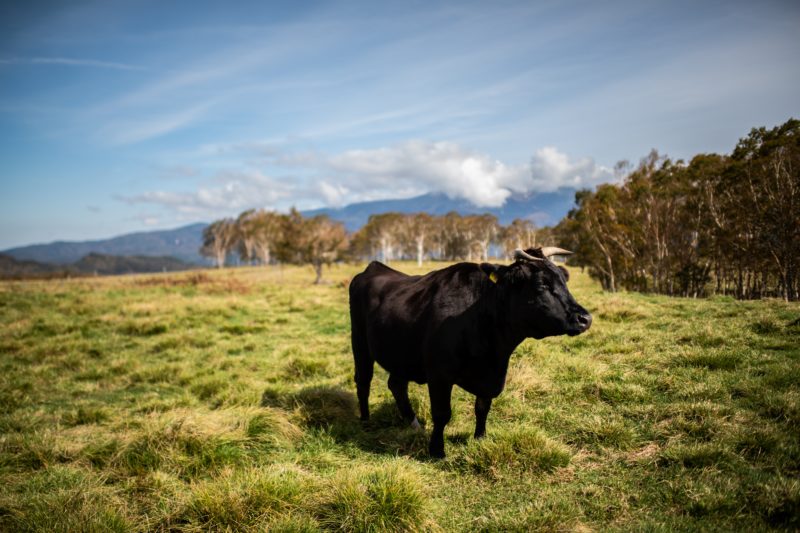Japan cattle farmers fear US trade deal will be death knell
Some Japanese cattle farmers fear they could struggle after a major trade deal with the US (Martin BUREAU)
Tokyo (AFP) – US and Japanese officials insist a hard-won bilateral trade deal will be a “win-win”, but some Japanese cattle farmers fear the agreement could sound the death knell for their embattled sector.
Cattle farmers are already struggling to adjust to the terms of two major free trade deals inked by Japan in recent years — the Trans-Pacific Partnership (TPP) and an agreement with the European Union.
But they fear the US trade deal will put much greater pressure on them.
“We were able to maintain a market for our products in competition with the TPP members, because our beef quality is good enough to compete, even if imported beef was cheaper,” said Harumi Yoshikawa, an official in charge of livestock at an agricultural cooperative in Hokkaido.
“But American beef rivals ours in terms of quality and in that sense we are worried.”
Akio Kawai, 61, who runs a ranch of some 4,300 beef cattle in Shikaoi town in northern Hokkaido, said: “Politicians are not thinking about us farmers at all.”
He said he is determined to stay afloat “but others may think about quitting this business”.
“Japanese beef may be delicious and offer a sense of safety to consumers, but US beef is absolutely cheaper, and that’s attractive to some,” Kawai said.
– Worries for the future –
Under the deal announced in New York on Wednesday, Japan will eliminate or reduce tariffs on $7.2 billion worth of US food and agricultural products.
Milk cow farmers fear they too will struggle, despite assurances of assistance from Japanese government officials.
The deal “will be a further blow to small cow farmers like us who keep just 30 to 50 cows,” said one dairy and beef cattle farmer in Kanagawa prefecture, south of Tokyo, speaking on condition of anonymity.
“Various costs — the price of feed crops, salaries for workers — are already weighing on us, and this deal will be another factor to worry about in terms of the future of this business,” he said.
“I wonder if many cow farmers, many of whom are ageing, will decide to quit the job,” he added.
“And I wonder if it’s right for Japan to lose these small-sized farmers… who are the majority of the Japanese farm industry.”
Japan came to the negotiating table reluctantly, after President Donald Trump’s administration withdrew from the TPP and threatened Tokyo’s key auto sector with sanctions.
But Japanese experts question whether the country’s negotiators have done enough to protect local farmers.
“Japan could have drawn more concessions from the US because it is Americans who withdrew from the TPP” and wanted more access, argued Akio Shibata, head of the Natural Resource Research Institute and former researcher for trading house Marubeni.
“Even if the levels of tariff cuts are same as those of the TPP, it will discourage Japanese farmers — who are already struggling to survive — from continuing their businesses,” he said.
– ‘Chew on car parts’ –
Manufacturing, including the auto industry, is seen as the main driver of Japan’s economic growth, accounting for roughly 20 percent of nominal GDP.
By contrast, the country’s agriculture sector accounts for just one percent of GDP.
The deal announced Wednesday is only the first phase of the talks, with Washington saying the second phase will include Japan’s auto sector.
Washington continues to wield the threat of imposing tariffs of up to 25 percent on Japan’s auto sector, which US officials view as a key tool to keep negotiations moving.
Nobuhiro Suzuki, an expert on agricultural trade at the University of Tokyo, said Japanese negotiators were offering agricultural concessions to protect the auto sector.
The “mindset is if the US threatens them with punitive measures on the auto sector, they offer (compromise in) agriculture,” he told AFP.
“The result will be a further reduction of agricultural production in this country.”
Kawai agreed, saying: “I wonder what the government is thinking about food safety and self-sufficiency rate.”
“The price of milk is already cheaper than (bottled) water. That’s unfair,” he added.
“If the government think it’s okay to import 100 percent of the milk Japan consumes, then that’s fine. When a food emergency occurs, they can enjoy chewing on steel car parts.”
Disclaimer: Validity of the above story is for 7 Days from original date of publishing. Source: AFP.


